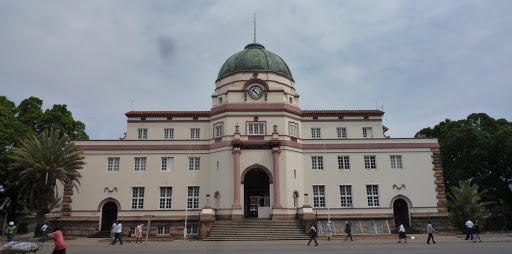High Court Judge, Justice Evangelista Kabasa has withdrawn a matter in which Bulawayo journalist, Zenzele Ndebele, had made an application challenging the Zimbabwe Media Commission (ZMC) for its failure to facilitate access to information.
In his application, Ndebele was arguing that ZMC was not facilitating access to information held by public bodies by not publishing regulations governing that as provided for in the Freedom of Information Act.
The Act is one of the pieces of legislation that repealed the Access to Information and Protection of Privacy Act (AIPPA).
While the act provided for access to information held by public entities, Section 40 (1) left out the regulations to ZMC.
The application, which was filed at the Bulawayo High Court on March 31 2021, by his lawyers from Ncube Attorneys, requested the court to issue an order compelling ZMC to make the regulations envisaged in section 40(1) of the Freedom of Information Act within 45 days.
He (Ndebele) cited ZMC chairperson Ruby Magosvongwe, ZMC and the then Information Publicity and Broadcasting Services Minister, Monica Mutsvangwa as respondents.
In delivering her judgment, Justice Kabasa said she was withdrawing the matter because ZMC had already enacted regulations that were being sought in the application.
Lawyer Matshobana Ncube explained that a Statutory Instrument, 229 of 2021, was issued while the application was already before the courts.
“The SI was gazetted in September 2021, when we had filed our legal arguments in August 2021 and were ready to argue the matter. We had initially made our application in March 2021, about 6 months earlier. The reason therefore why the matter was withdrawn is because the Judge noted that she cannot hear a matter whose demands have already been met,” Ncube said.
The application noted that while the Freedom of Information Act provides for citizens to apply for information held by public bodies, the absence of regulations renders the provision nugatory hence an infringement on his right to access information.
“Consequently, the Commission (ZMC) has failed to act in line with the law by failing to enact such regulations considering that the Act was gazetted in July 2020 (8 months ago),” argued Ndebele.
“The Commission was supposed to carry out this duty within a reasonable time. Failure to do so within the past 8 months means the Commission has failed to carry this duty within a reasonable time. Even the fact that there have been lockdowns owing to the coronavirus cannot be a reasonable excuse as the state has not stopped functioning with Parliament working at times virtually. Incidentally, the lockdown measures have been relaxed now and then.”
In response to the application, the respondents argued that Ndebele had rushed to the courts to make an application without engaging the parties, who had already started the process of making the suggested regulations.
The response was filed before the same court in November 2021.
“At the time when the Applicant lodged his Court Application, the 1st and 2nd Respondents had already started the process of coming up with a draft of Freedom of Information Act Regulations. The first draft of the Regulations had already been circulated to the Legal Disciplinary and Complaints Committee for consideration,” the response read.
“The Freedom of Information Act [Chapter 10:33] was gazetted in July 2020 to repeal the Access to Information and Protection of Privacy Act and also give effect to the right of access to information as provided for by the Constitution. In September 2021, the Regulations were finally enacted under the Statutory Instrument 229 of 2021 as the Freedom of Information [General] Regulations 2021.”

